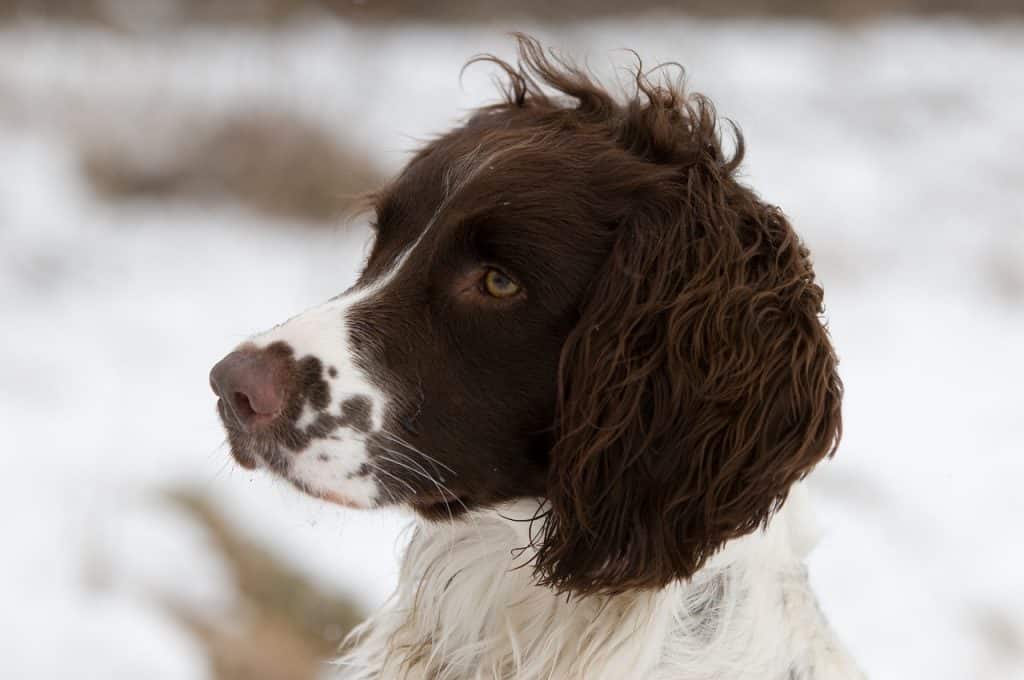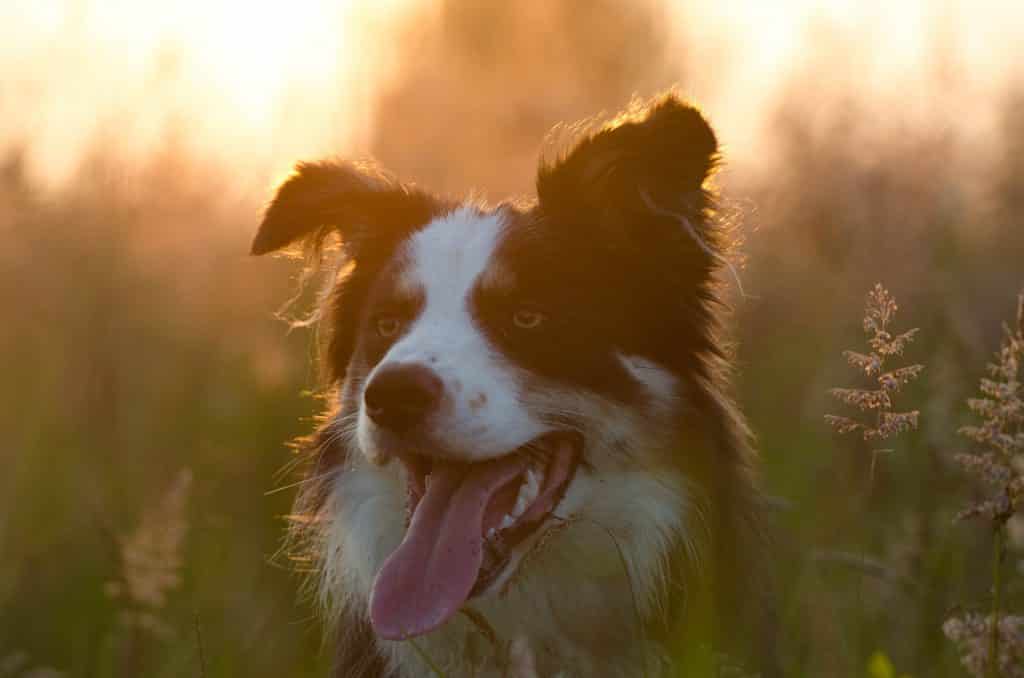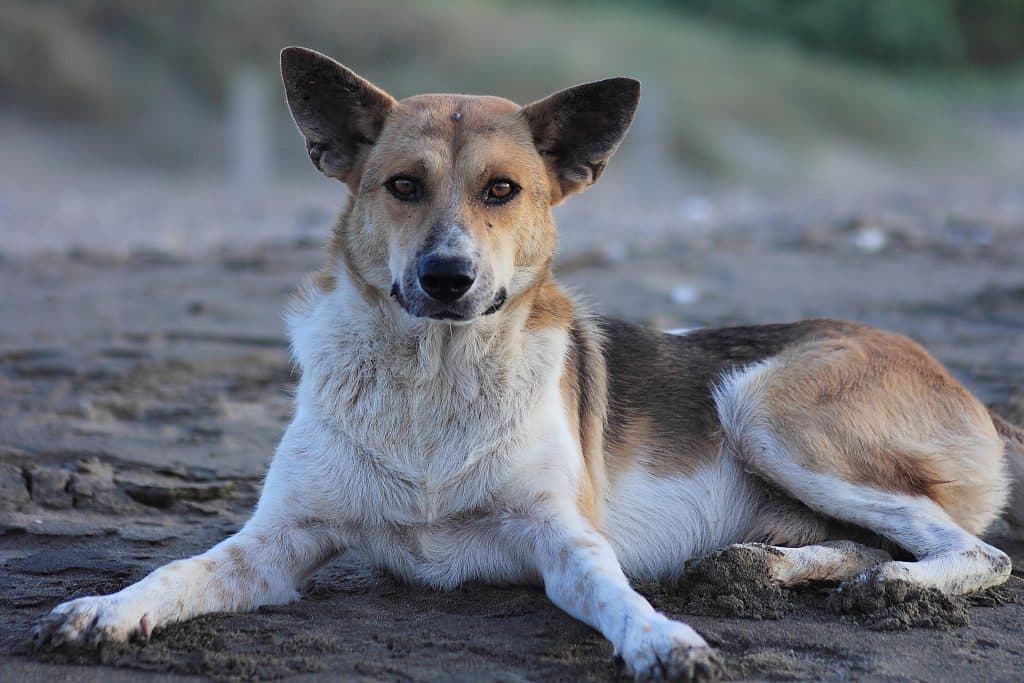Dogs come in all shapes and sizes. However, this isn’t the only thing that makes them all different. Each breed also has its own risks and worries when it comes to potential health concerns. The last thing you want to worry about when adopting a new BFF is your relationship being cut short or endless vet bills. Luckily, there are plenty of breeds that tend to live long and healthy lives. Keep reading to learn more about the top healthiest dog breeds.

10 Incredibly Healthy Dog Breeds
- English Springer Spaniel
- Shiba Inus
- Poodle
- Greyhound
- Border Collie
- Bichon Frise
- Australian Cattle Dog
- Foxhound
- Ibizan Hound
- Canaan Dog
1. English Springer Spaniel

This breed tops the list thanks to their almost nonexistent history of hereditary diseases. However, while these dogs are typically very healthy, there are some minor issues to watch out for such as eye problems.
2. Shiba Inu

With an extremely healthy past, this breed definitely deserves a spot on this list. A lot of smaller dogs tend to be prone to a wide variety of health issues, but that’s not the case at all when speaking of a Shiba Inu.
3. Poodle

Yet another breed that tends to live a long and healthy life, Poodles of all sizes are notorious for being an incredibly healthy dog breed. They present little to no health concerns which is always a huge plus. Adopting one of these furry friends will bring you many years of good times.
4. Greyhound

Greyhounds have a lot more to offer than speed and agility. This breed isn’t really known to suffer from serious health problems. Just make sure your BFF gets plenty of exercise and a healthy diet and there won’t be anything to worry about.
5. Border Collie

Border Collies seem to be able to effortlessly stay in great shape and serious health problems are one of the last things you have to worry about with this breed. It’s no wonder why they have been used for so long as working dogs.
6. Bichon Frise

If you can deal with your furry BFF experiencing some occasional allergy problems, this could be the right breed for you. Believe it or not, that’s literally the biggest health problem to worry about with these little guys.
7. Australian Cattle Dog

The Australian Cattle Dog is another winner that made it on this list. This breed tends to live a long life, typically ranging between 10 – 13 years. They have great genetics which has led them to be an incredibly smart, fast, and healthy working dog.
8. Foxhound

Foxhounds are the perfect breed for a family that’s looking for a low maintenance dog with great health. Their long life span ensures your family will have plenty of time to create memories. However, it’s important that these little guys get a moderate amount of exercise.
9. Ibizan Hound

On top of making an excellent family member, this breed is well known for its incredible health. However, if you plan on welcoming one of the furry friends home, it’s important to make sure that you have a well-secured yard. These guys know how to escape and they’re always up for a challenge.
10. Canaan Dog

Typically living for around 13 years, this is a breed you will have plenty of time to form a bond with. With little to no common health concerns, Canaan Dogs tend to remain in great health well into their later years. However, this may not be the best choice for someone with other dogs or small children at home.
It was a lot of fun sharing this information with you and I hope that you enjoyed reading it. As you can see from this list, there are plenty of dogs that live long and healthy lives.
Keep in mind, just because a breed doesn’t commonly experience health problems doesn’t mean you shouldn’t take proper care of them. Regular checkups are a must with any breed just as a proper diet, exercise and a lot of love are as well.
So, what do you think? Could today be the day that a furry friend is rescued from a shelter? I certainly hope so and I hope this information makes your choice a bit easier.
Frequently Asked Questions
What are the signs of a healthy dog?
There are several different ways to spot a healthy canine. For starters, they will have a shiny and full coat. Their skin will be smooth and free of growths, dry areas, and dandruff. Other signs of healthy fur baby include bright eyes, clean pink ears, a moist and cool nose, as well as healthy gums and teeth.
What dog lives the longest?
Australian Cattle Dogs take the win here. They even have a place in the Guinness Book of World Records as the world’s longest living breed. Bluey, an Australian Cattle Dog lived for an astonishing 29 years. That’s 203 in canine years! Other dogs with long lifespans would include Chihuahuas, Yorkshire Terriers, and Toy Poodles.
How can I keep my dog healthy and live longer?
You can help your four-legged friend live a longer life with a little extra care and attention. First of all, you’ll want to feed them nutrient-rich food and make sure they maintain a healthy weight. Plenty of exercise is also important. Don’t forget about mental stimulation. Food puzzles are a great solution for that. Regular check-ups at the vet are also important. Oral hygiene is also an absolute must when it comes to good health.
What is the healthiest thing for a dog to eat?
A premium nutrient-rich and breed size-specific dry food is a good place to start. However, there are several types of “human food” that are healthy for them as well. For example, salmon is incredibly healthy for dogs and it even improves the health of their immune system, skin, and coat. Shrimp can help them maintain proper digestion and improve their circulation. Tuna is another option that is packed with healthy nutrients.
What is the healthiest dog food?
Instinct offers a wide variety of flavors, it’s highly nutritious, and it’s even grain-free. It easily comes in as one of the best dry foods you can give your furry friend. It can be on the pricey side, but the benefits it has for your four-legged friend more than make up for it. Another option would be Nature’s Logic.
What dog foods are bad for dogs?
The FDA is currently conducting an investigation on several different brands that they believe are linked to heart failure. The top 5 brands you should avoid until more research has been done are Acana, Zignature, Earthborn Holistic, 4Health, and Taste of the Wild.
How can I boost my dog’s immune system naturally?
Simple ways to help your fur baby’s immune system function properly are feeding them the right food, bathing them regularly, keeping their bowls clean, supplements such as fish oil or probiotics, regular exercise, and healing massages.
What vitamins are bad for dogs?
It’s important to remember to always follow recommendations for vitamins. Any vitamin consumed in excess has the potential to become unhealthy or even dangerous. However, there are specific vitamins that are classed as potentially unsafe for dogs. Iron supplements and Vitamin D should be avoided whenever possible.
What is the best vitamin supplement for dogs?
There’s no clear-cut answer to this question since all dogs and their needs are different. Typically speaking, your furry friend should not need supplements if they have a balanced and healthy diet. If you think your furry baby is lacking certain vitamins or could be in need of supplements, talk to your vet and let them help you determine the best course of action to take.
How important is exercise for dogs?
Extremely important. Regular exercise helps dogs avoid issues such as excessive weight gain. It also promotes joint, bone, heart, and even lung health. Plus, it can even help your furry friend avoid health problems such as anxiety, mental decline, and age-related diseases.






